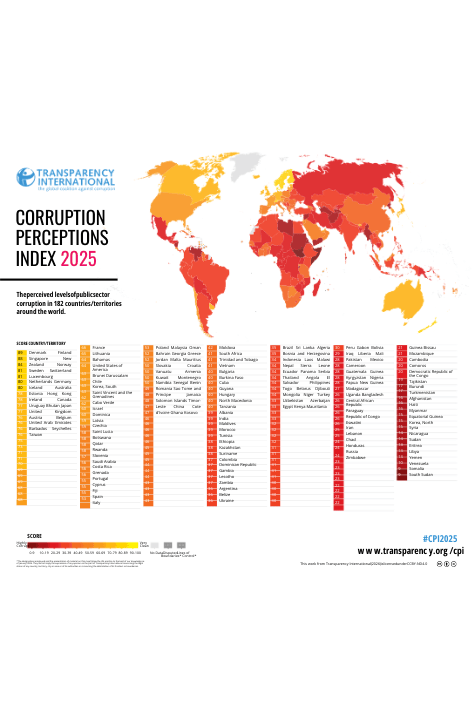Insights
Explore our expert analysis and thought leadership on legal developments that shape how you do business.

-
 Article 04.03.2026
Article 04.03.2026Birleşik Krallık’ta Yeni Dönem: Suistimali Önlememe Suçu
Birleşik Krallık’ta 2023 tarihli Ekonomik Suçlar ve Kurumsal Şeffaflık Yasası (Economic Crime and Corporate Transparency Act) kapsamında getirilen “suistimali önlememe” suçu, 1 Eylül 2025’te yürürlüğe girmiştir. Düzenleme, büyük şirketlerin çalışanları veya temsilcileri tarafından şirket yararına işlenen suistimalleri önlemek için makul tedbirleri almamaları hâlinde cezai sorumluluk doğurur. Ayrıca Birleşik Krallık’la ekonomik bağlantısı bulunan yerli ve yabancı şirketleri kapsayabileceği gibi sınırsız para cezası gibi ciddi yaptırımlar öngörmektedir.
Read more > -
 Article 02.03.2026
Article 02.03.2026İş Yerlerinde Psikolojik Tacizin (Mobbing) Önlenmesi: 2025/3 Sayılı Cumhurbaşkanlığı Genelgesi Değerlendirmesi
İş yaşamında bireyi hedef alarak sistematik bir yıldırma politikasına dönüşen mobbing, 2025/3 sayılı Cumhurbaşkanlığı Genelgesi ile artık çok daha kapsamlı bir mücadele alanına taşınmıştır. Yeni düzenleme, işverene sadece denetleyen değil, aynı zamanda koruyan ve önleyen bir rol biçmektedir. Bu rol gereği getirilen standartlar, soruşturma süreçlerinde mağdurun gizliliği ile kurum itibarını hassas bir dengede tutarak çalışma barışını korumayı amaçlar. Nihayetinde bu yeni vizyon, yasal tedbirlerin iş süreçlerine tam entegrasyonunu sağlayarak verimli ve sürdürülebilir bir çalışma düzeni oluşturmayı hedeflemektedir.
Read more > -
 Article 23.02.2026
Article 23.02.2026Cebri İcra Kanunu Taslağı Işığında Taşınmazların İcra Yoluyla Satışı İkinci Bölüm: Kıymet Takdiri
Bu makale, taşınmazların haciz ve satış aşamalarındaki kıymet takdirini, mevcut kanun ile Cebri İcra Kanunu taslağını karşılaştırarak incelemektedir. Kıymet takdirinin işlevi, tebliği, kesinleşmesi ve satış talebiyle ilişkisi ele alınarak uygulamadaki sorunlar ve yeni düzenlemelerin olası etkileri değerlendirilmiştir.
Read more > -
 Article 16.02.2026
Article 16.02.2026Evaluation of Kickback Practices under the Turkish Criminal Law
Kickbacks are not regulated as a separate offense under Turkish Criminal Law. Their criminal qualification depends on whether the legal elements of abuse of trust or fraud are fulfilled. Without entrusted property, qualified deception, or proven financial damage, criminal liability cannot be established. Therefore, kickbacks mainly raise ethical and compliance concerns and require case-specific legal assessment.
Read more > -
 Legal Alert 13.02.2026
Legal Alert 13.02.2026Rekabet Kurulundan İzin Alınması Gereken Birleşme ve Devralmalar Hakkında Tebliğ’de Kapsamlı Değişiklik
33165 sayılı ve 11.02.2026 tarihli Resmî Gazete’de yayımlanan Rekabet Kurulundan İzin Alınması Gereken Birleşme ve Devralmalar Hakkında Tebliğ (Tebliğ No: 2010/4)’de Değişiklik Yapılmasına Dair Tebliğ (Tebliğ No: 2026/2)ile birleşme ve devralmalara ilişkin ciro eşikleri güncellenmiş, işlem tarafı ve ilgili teşebbüs tanımları genişletilmiş, teknoloji teşebbüslerine özel düzenlemeler getirilmiştir. Ortak girişimlerde rekabet etkisi incelemesi güçlendirilmiş, kısmi devirlerde ciro hesabı netleştirilmiş, devam eden dosyaların sonlandırılmasına imkân tanınmış ve bildirim formu detaylandırılmıştır. Böylece kaynakların etkin kullanımı, hukuki belirlilik ve rekabetin korunması hedeflenmiştir.
Read more > -

-
 Legal Alert 11.02.2026
Legal Alert 11.02.2026Transparency International – Corruption Perceptions Index 2025 and Implications for Companies Operating in Türkiye
The CPI 2025 highlights continued global governance decline, with Türkiye ranking 124th out of 182 countries and recording its lowest score to date. This environment increases regulatory, reputational, and compliance risks for companies. Businesses operating in Türkiye must strengthen internal controls, third-party due diligence, and governance frameworks to meet rising international enforcement and investor expectations.
Read more > -
 Article 09.02.2026
Article 09.02.2026Cebri İcra Kanunu Taslağı Işığında Taşınmazların İcra Yoluyla Satışı
İcra takibinin en önemli aşamalarından biri borçlunun taşınmazlarının satışıdır. Bu makale serisinde, Cebri İcra Kanunu Taslağı ile 2004 sayılı İcra ve İflas Kanunu hükümlerini karşılaştırarak taşınmazların satışını ele alacağız. İlk yazıda, genel itibariyle satış sürecinin aşamalarını inceleyeceğiz.
Read more > -
 Article 06.02.2026
Article 06.02.2026From Reactive Auditing to Culture Architecture: Managing Fraud Risk Through Behavioral Psychology
This article reframes corporate fraud as a systemic and behavioral phenomenon rather than individual moral failure. Drawing on the Fraud Triangle, Fraud Diamond, and behavioral ethics research, it explains how pressure, opportunity, rationalization, capability, and ethical blindness enable misconduct. It argues that effective fraud prevention requires ethical leadership, zero-exception enforcement, and a strong speak-up culture embedded within organizational design framework.
Read more > -
 Article 04.02.2026
Article 04.02.2026İSG Mevzuatı Kapsamında İşveren Yükümlülükleri
Makale; 6331 sayılı İş Sağlığı ve Güvenliği Kanunu kapsamında risk değerlendirmesi, sağlık gözetimi, eğitim, acil durum planları, İş sağlığı ve güvenliği personeli görevlendirme, kayıt ve bildirim sorumlulukları başta olmak üzere işverenlerin temel İSG yükümlülüklerini ayrıntılı biçimde ele almaktadır. Bu kapsamda, işyerlerinin tehlike sınıflarına göre farklılaşan yükümlülükler ve idari para cezaları açıklanmaktadır. Mevzuata uyumun çalışan güvenliği, idari ve adli yaptırımlardan kaçınma ve kurumsal itibar açısından önemi vurgulanmaktadır. Ayrıca denetim süreçleri ve idari para cezalarının sınırları belirtilmektedir.
Read more > -
 Legal Alert 02.02.2026
Legal Alert 02.02.2026Regulation on Products Derived from Cannabis Published
The Regulation on Products Derived from Cannabis, published on 31 January 2026, regulates the production, licensing, traceability, export, and sale of medicinal products, health products, personal care products with no narcotic effect, and support products derived from cannabis. The licensing and supervision of cannabis-derived products are carried out by the Ministry of Health and the Turkish Medicines and Medical Devices Agency (TMMDA). The maximum THC content for these products is set at 0.3%. Sales are permitted exclusively through pharmacies; medicinal products and health products may not be sold without a prescription. In addition, an electronic tracking system is mandatory, and a cosmetic product notification is required for personal care products.
Read more > -
 Legal Alert 02.02.2026
Legal Alert 02.02.2026Kenevirden Elde Edilen Ürünlere Dair Yönetmelik Yayımlandı
31 Ocak 2026’da yayımlanan Kenevirden Elde Edilen Ürünlere Dair Yönetmelik, kenevirden elde edilen tıbbi, sağlık, uyuşturucu etkisi olmayacak oranda kişisel bakım ürünleri ile destek ürünlerinin üretim, ruhsatlandırma, izlenebilirlik, ihracat ve satış süreçlerini düzenler. Kenevirden elde edilen ürünlerin ruhsatlandırılması ve denetimi Sağlık Bakanlığı ile Türkiye İlaç ve Tıbbî Cihaz Kurumu (TİTCK) tarafından yürütülür. Bu ürünlerde THC üst sınırı %0,3’tür. Satış sadece eczanelerden yapılır; tıbbi ve sağlık ürünleri reçetesiz satılamaz. Ayrıca elektronik takip sistemi zorunludur ve kişisel bakım ürünleri için kozmetik ürün bildirimi şarttır.
Read more > -
 Article 30.01.2026
Article 30.01.2026Hukuki Açıdan Hasta Yükümlülükleri: Hasta Hakları Yönetmeliği Kapsamında Bir Değerlendirme
Makalede Hasta Hakları Yönetmeliği çerçevesinde hasta ile sağlık meslek mensupları arasındaki ilişkinin hukuki ve etik boyutunu incelemektedir. Güven, rıza, mahremiyet ve eşitlik ilkeleri açıklanmakta; hasta haklarıyla birlikte iş birliği, doğru bilgi verme, tıbbi tavsiyelere uyma, şiddetten kaçınma ve hasta hakları birimine başvurma gibi hasta yükümlülükleri değerlendirilirken, karşılıklı sorumlulukların sağlık hizmetlerinin niteliğini belirlediği vurgulanarak hukuki çerçevenin önemi ortaya koyulmaktadır.
Read more > -
 Article 28.01.2026
Article 28.01.2026Employer Guidelines for the Protection of Employees’ Personal Data
This article outlines employers’ obligations regarding the protection of employees’ personal data under Turkish law, focusing on the Personal Data Protection Law. It addresses lawful processing, transparency, data minimization, security, retention, transfers, and sanctions for non-compliance.
Read more > -
 Article 26.01.2026
Article 26.01.2026Ortak Pazarlama Anlaşması ve Hazırlanırken Dikkat Edilmesi Gereken Unsurlar
İlaç sektöründe ortak pazarlama (co-marketing), aynı tıbbi ürünün aynı pazarda farklı ticari markalarla birden fazla firma tarafından pazarlanmasıdır. Türkiye’de Beşerî Tıbbi Ürünler Ruhsatlandırma Yönetmeliği ve Türkiye İlaç ve Tıbbi Cihaz Kurumunun Ortak Pazarlanan Beşerî Tıbbi Ürünlere İlişkin Kılavuz’u yol göstericidir; ürün, ana ürünle bileşen, form, üretim yeri ile KÜB/KT açısından (isim ve ruhsat bilgileri hariç) aynı olmalıdır. Ortak pazarlama anlaşmasında görev paylaşımı, tedarik fiyatı, marka yönetimi, rekabet hukuku uyumu ve izleme mekanizmaları netleştirilmelidir.
Read more > -
 Legal Alert 21.01.2026
Legal Alert 21.01.2026New Rules on the Publication Periods of Data Breach Notifications
With the latest public announcement published on the official website of the Personal Data Protection Authority (“Authority”), it has been announced that a significant change has been introduced in the practice regarding the publication of data breach notifications on the Authority’s website, in line with the Personal Data Protection Board’s Decision dated 25/12/2025 and numbered 2025/2451. Accordingly, a new period has begun in terms of the publication durations of data breach announcements; the maximum publication period has been limited to 60 days. It has been decided that, if it is proven that the affected data subjects have been notified within a shorter period than this, the announcement will be removed.
Read more >